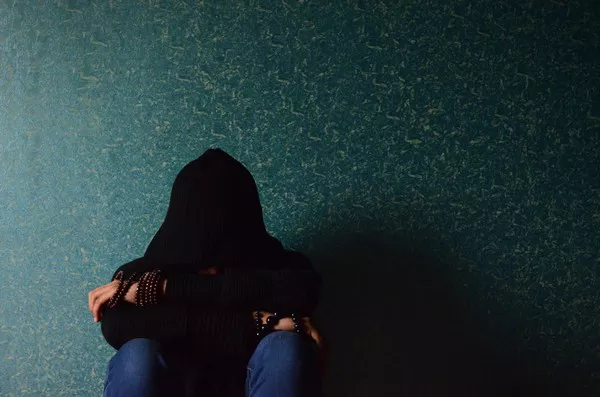In the wake of their children’s worsening mental health conditions, parents are witnessing a concerning decline in their own well-being, with physical and mental health challenges piling up. This distressing trend underscores the pressing need for improved access to mental health care and support for families, especially those navigating a fragmented and overstretched mental health system.
Sarah Delarosa, a mother of four from Corpus Christi, Texas, experienced firsthand the toll of her teenage daughter’s mental health struggles on her own health. After her daughter Amanda’s three-year-long cycle of suicide attempts, emergency room visits, and mental health programs, Delarosa noticed a sharp decline in her own well-being. Mini strokes and stomach bleeding became recurring health issues for her, all exacerbated by the challenges of managing Amanda’s deteriorating behavioral and mental health. This ordeal led Delarosa to miss work as a home health aide, depriving her family of essential income.
The shortage of mental health care providers on a national scale, combined with the ongoing search for affordable care, has compounded the difficulties faced by parents, who often bear the primary responsibility for the health and welfare of their children. According to psychologists, researchers, and family advocates, this persistent struggle has given rise to a health crisis of its own among parents.
Christine Crawford, Associate Medical Director at the National Alliance on Mental Illness, emphasized that the pressure of tending to their children’s needs can have significant ramifications on parents’ physical and mental well-being. Parents frequently pour their energy into aiding their children, often at the expense of their own health. The constant state of worry over their children’s survival activates a perpetual fight-or-flight response, Crawford stated.
The scope of parents in crisis is more extensive than might be apparent. Recent reports from reputable sources like the Centers for Disease Control and Prevention, the surgeon general’s office, and medical providers all underscore the alarming prevalence of severe mental health challenges among American children. A January study conducted by the Pew Research Center revealed that around 40% of parents with children under 18 are extremely or very concerned about the possibility of their children grappling with anxiety or depression at some point.
While evidence-based therapies for addressing children’s mental health include involving parents, researchers and pediatric mental health specialists contend that the attention given to adult caregivers and their own anxiety and stress often falls short. Parent-child interaction therapy, for instance, focuses on training parents to manage their young child’s behavior to prevent more severe issues later on. While this approach may benefit the child, it doesn’t directly address the parent’s well-being.
Danielle Martinez, a behavioral health specialist at Driscoll Children’s Hospital in Corpus Christi, observed numerous parents struggling emotionally in response to their children’s mental health challenges. In response, the hospital is set to establish peer support groups to aid family members whose children are under the facility’s care, recognizing the critical need for familial support.
The repercussions of parents’ declining mental and physical health can significantly hinder their ability to mitigate their child’s condition from worsening. Mary Ann McCabe, a board member of the American Psychological Association, an associate clinical professor of pediatrics at George Washington University School of Medicine, and an independent clinical practice psychologist, stressed the importance of considering parents as a vital resource for their children’s well-being.
As these challenges persist, it becomes evident that solutions are urgently required. The lack of available care and support has prompted parents to explore every avenue to secure help for their children. While some states have begun to acknowledge the vital role of caregivers and provide additional support, the overall situation remains challenging. In July, California allocated funding to aid parents as part of a child mental health initiative.
Ultimately, the well-being of both children and parents is inextricably linked, and experts emphasize that effective mental health care for youth must extend to include robust support systems for parents. Without a holistic approach, the enduring impact of untreated mental health challenges in children will continue to reverberate throughout families for years to come.

































